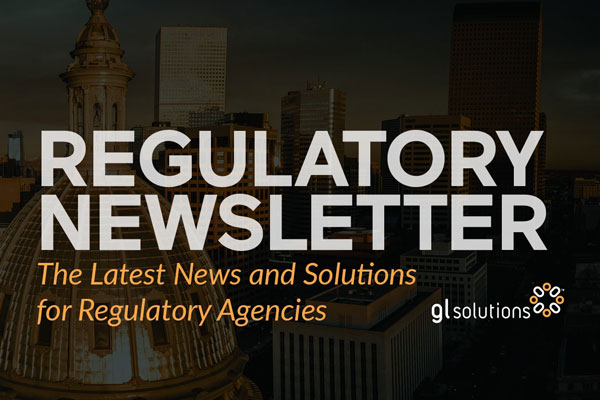New state rules and regulations force your regulatory agency to constantly pivot—as you align your complex business processes with these legislative updates. Discover some of the latest legislative changes—and opportunities—confronting your agency. And learn how to adapt with ease.
1. Gun law updates
The U.S. Supreme Court expanded gun rights in a major decision in June. In New York State Rifle & Pistol Association v. Bruen, the court declared unconstitutional New York’s license requirement for concealed handgun carrying. In response to the decision, states started passing revised gun licensing laws.
Massachusetts: The Massachusetts Senate, for example, passed legislation on July 30 in response to the U.S. Supreme Court ruling related to handgun licensing. The bill removes a “firearm licensing authority’s and the Massachusetts State Police’s discretion in issuing, renewing or restricting licenses to carry firearms,” according to Governing on August 1. However on October 3, according to the New York Post, “The US Supreme Court vacated a Massachusetts gun control law in one of the first orders of its new term following the justices’ June ruling striking down a New York statute that required people to show “proper cause” if they want to carry a concealed firearm in public.
New York: Following the Supreme Court’s decision, New York passed additional gun legislation. According to Slate on October 6, a federal judge blocked large portions of New York’s gun law, finding much of the new restrictions unconstitutional.
2. State Cybersecurity Funding
The Biden administration on September 16 launched a $1 billion grant program for state and local cybersecurity initiatives, according to StateScoop. The Department of Homeland Security issued a notice of funding opportunity for the grants, announcing a 60-day application window for states to submit plans for the four-year program. The Cybersecurity and Infrastructure Security Agency and the Federal Emergency Management Agency plan to oversee the grants. According to StateScoop, “The first year of funding technically covers the federal government’s 2022 fiscal year, a period that ends Sept. 30.”
3. Free Speech Challenges
The Council on Licensure Enforcement and Regulation (CLEAR) addresses the impact of free speech challenges to the licensure of speaking professions; according to CLEAR, “a lot of lawsuits recently in the U.S. are drawing on the legal argument that states violate the free speech rights of unlicensed individuals by requiring that they meet minimum qualifications and obtain a license in order to practice this so called ‘speaking profession.’” Charla Burill with North Carolina Board of Dietitians and Nutrition and Pepin Tuma with Academy of Nutrition and Dietetics explain why dietetic boards are being sued using this argument, as well as whether other professions should be concerned.
Action Items for Adapting to Regulatory Changes
Take the following steps to support your agency’s journey through regulatory changes:
- Ensure that your business processes take your unique and specific complex business needs into account.
- Verify that users understand how to successfully complete these business processes; check this by letting your users test the process.
- Make sure your current system gives you the ability to add and modify business processes at any time.
Learn more
GL Solutions helps governments run, grow and adapt. To learn more on how to meet your regulatory agency’s complex business needs, explore our website, call us at (971) 337-2659 or email us at hello@glsolutions.com.


